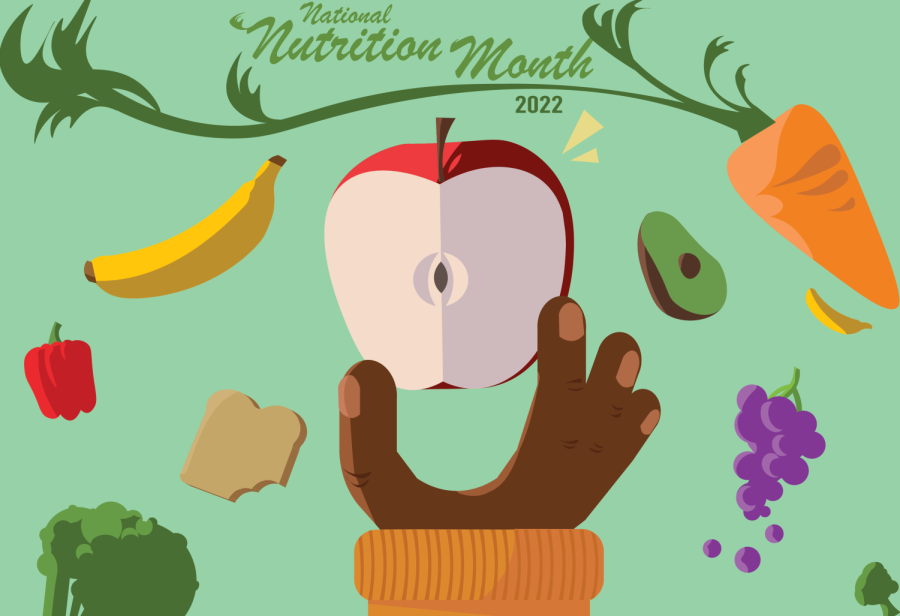March is National Nutrition Month
March 25, 2022
The importance of promoting healthy eating habits and nutritional education, and access
Since 1973, National Nutrition Month, a campaign held annually in March, has focused on the importance of delivering nutrition education to the public.
This year’s theme, “Celebrating a World of Flavors,” embraces global cultures while making informed choices on food. CSUEB’s Dining Commons provides a plethora of food choices for campus residents in Pioneer Heights.
“We recognize that not all individuals have had access to nutrition resources, and we are committed to providing healthy options and educational resources for all members of the Pioneer community,” explained Kayla Lamont, Director of Marketing & Guest Experience at CSUEB’s Pioneer Dining.
Eating a variety of food that works for you and relying on the guidance of registered dietitian nutritionists will encourage healthy eating habits for shoppers to participate in weekly plans that will help consumers strive for better ways, According to the Academy of Nutrition and Dietetics.
Poor nutrition is seen amongst people all across the globe, often systemic issues such as limited access to produce and fresh foods and the overall lack of knowledge regarding health and nutrition, many of which affect low-income communities.
“It’s really important that when we think about these issues, we think of them through this big lens of public health and public policy because so often the blame is put on the responsibility for solving these problems on individual families,” said Dr. Maria Livaudais, an assistant professor in the Department of Public Health at CSUEB.
Various causes are the contributing factors to how the inaccessibility of healthy food is typically due to neighborhood income levels and the lack of programs that fit their needs.
“When we think of how that income plays, I think we’re also thinking about the role that our public policies play and the roles that community support plays in getting better access to quality nutritious food,” Livaudias explained.
The Covid-19 pandemic has played a critical role in increasing food insecurity amongst the low-income communities due to discriminatory practices that have led Black and brown communities to have fewer financial resources.
“Racial inequity is the result of structural racism that is embedded in historical, political, cultural, socio-economic systems and institutions,” said Feeding America, adding, “Compared to whites, Black [people] are more likely to experience higher rates of obesity, diabetes, and heart disease. Black adults also are more likely to die from cancer, and their children are four times more likely to be admitted to the hospital for asthma. Only one in three Black adults in need of mental health treatment receive it.”
In order to achieve the vision of a hunger-free America, reducing the racial equity gap and addressing the needs of our impacted communities is crucial.
“This is a really complicated problem because if it wasn’t complicated, it would be solved very easily, but one of the biggest things that I think that we can do is to support the economic growth of our black and brown communities,” Livadauis said.
Policy initiatives may effectively close the gaps many of our low-income communities face by bringing light to the important things that come with it.
“When we think of policy, it’s something that has to really push the boundaries of what our communities actually need, and so even though we’re talking about nutrition; it’s also a Crucial part to talk about things like the minimum wage it’s also important to think about things like child care assistance it’s also important to think about you know building resilience in neighborhoods you know all of these other things that are indirectly but have tied to nutrition.”
Improving the health and wellbeing of our communities is essential, and policies have the potential to improve health outcomes.







![Photo of fentanyl from the U.S. Drug Enforcement Administration (Photo courtesy DEA via Bay City News) [for education purposes only]](https://thepioneeronline.com/wp-content/uploads/2024/03/IMG_4583-600x443.jpg)









